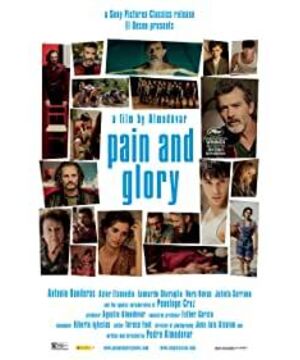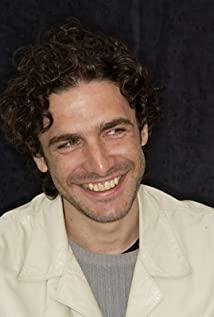There are two types of movies. One is the audience-oriented movies. They either have a well-structured script, or have unique shots, or have a variety of exciting bridges that can stimulate the secretion of adrenaline. These movies One by one, the colorfully wrapped gift boxes, we held them in our hands and shook them one by one, and couldn't wait to open them to accept the gifts of the fantasy world. The other kind of film is directed by the author. The creator holds the thread of "fruit" in his hand, looking back to the river of time, from memories or childhood, to find the "cause" hidden in it, and these threads are stretching. At the same time, it will also resonate with the audience's brain nerves. When some pictures overlap with the memories stored in the cerebral cortex, it is the moment when the time tunnel opens.
Similarly, film reviews are also divided into two types. A kind dedicated to the director and the film, we analyze, we dissect, we use all rational thinking to find the logic that matches the behavior of the character, just like solving an equation, and striving to be clear about each other. The other is written to ourselves.
The movie "Pain and Glory" and this film review of mine are both the latter.
Seeing someone else write a review, saying, "I watched this movie one evening on a rainy day, I couldn’t feel calm for a long time, and I sat silently in the dark for a long time." I felt contemptuous and thought I would come to the review, but I didn’t want to watch it. You write so much nonsense that has nothing to do with the movie. Later, there were fewer and fewer comments like this, and more, they analyzed the storyline, the director and even the box office analysis of the awards, plus a lot of exquisite screenshots or golden sentences, and finally a sulky typesetting, and then you can post to the public account after you change your hands. . I don’t know when there has been a trend. Commentators are like Holmes holding a magnifying glass. Behind a large amount of information, they are more and more afraid of exposing their true feelings in the text.
I've read a collection of film reviews before, called "Murder Movie", which is probably the best collection of film reviews I have ever seen. When the author wrote "Schindler's List", he said that when he first watched this film, he was thinking that only a few people in the world have seen such a deep and powerful film. Does it have anything to do with this movie? Of course not, but you just think, ah, yes, this movie feels awesome, it's such an independent, awesome.
We have been taught since we were young not to take the emotions from work home, not to take the emotions at home to work, and not to influence friends and lovers because of our emotions. Now we draw inferences from one another and do not bring emotions into film reviews. That is not film reviews, just Amateur impressions. Indeed, calm analysis is always neutral and always safe, while exposing emotions is very dangerous. However, if it is not for expressing emotions, why should we write film reviews?
Speaking of movies, what are the key words of Almodovar? There is a standard answer to this question: feminine, exotic, fringe, color. In my opinion, "Pain and Glory" is probably the most "simple" film ever made by Almodovar. The plot can be summed up in one sentence. An elderly sick director, through the creation of an autobiographical script, traced back a love in his youth and part of his childhood memories. It can almost be said that there is no plot. The animation at the beginning of the film is very interesting, "Bones, muscles, and nerves all maintain our body functions together. The only connection between us, just like the connection between people and the Greek gods, is through sacrifice", How do we feel their existence? Of course through pain.
The director of the film, Salvador, was unable to make a movie due to many physical illnesses, but at the same time, he is a person who sees movies as the whole meaning of life. He took the initiative to seek peace with his old friends, but couldn't help showing his ugliness in front of everyone. He broke up with his old love because of drugs, but now he is secretly taking drugs at home. He rewritten his previous love story into a script and staged it over and over again, but firmly rejected the favor of the old love. The role of El Salvador is very, very contradictory, which makes me think that Almodovar has really projected part of his self onto this character, even though he said that only 20% of the elements in the film are based on reality.
When I was 17 years old, I wrote in my diary: "Can aging come faster?" I felt really awesome. Now that I am approaching middle age, I still often imagine my old age. Of course, this is not awesome. Those scenes that exist in my imagination are very frightening. The older the person is, the clearer the memory of the past. At the age of 21, memories have reached their limit as far back as elementary school, but recently, the boundaries of memory have begun to break through, things in kindergarten, things still living in the old house at home, some scenes, some conversations, and more The emotions at that time will suddenly pop out very clearly. So for the elderly, what do memories mean? Daxi and Dabei will definitely never be there again, everything is like being covered in a cold glass cover. So when Salvador shed tears and saw his story turned into a drama, the point I was touched was that when those in the past are far away from you, when you know that there is no way to start again. , You still shed tears for these no longer meaningful things, how much regret should be hidden in these tears.
Compared to the chaotic and fuzzy old age, I prefer the line of childhood in the film. The sky is always clear, and the house is always on the walls. The sun in midsummer can burn people, but besides the sun, there is also a young and strong body that is perfect and unconcealed without any shame. When I was young, everything could be simple. I sleep on the floor without a bed, eat bread with chocolate when I have nothing to eat, and mend my socks with needles and threads. If you are illiterate, I will teach, I can paint, and I will paint you. Seeing something beautiful that I couldn't bear, I chose to faint and bend. In the interview, Almodovar said that if only this part of the film is filmed, then the whole movie will only be painful and desperate, so there will be this line of childhood, and El Salvador will let him at every moment of confusion or fainting Thinking back to childhood, perhaps for a person who no longer has a future, the past is his heroin.
Every time I write something, I don’t know how to end, just like many encounters in my life, I don’t know how to say goodbye correctly. Maybe I am not old enough, maybe I don’t have enough time. But I don’t think Almodovar, who is already 70 years old, knows. He can only break the fourth wall simply and rudely in the last scene of the film, but he will still shed tears when he is finished because he can’t give up again. .
View more about Pain and Glory reviews











